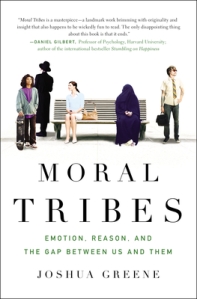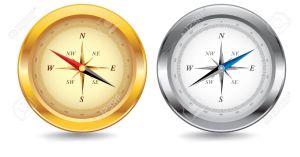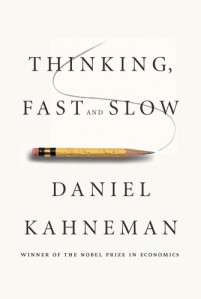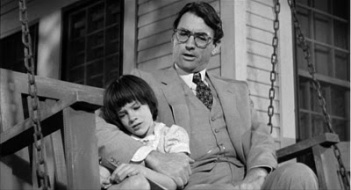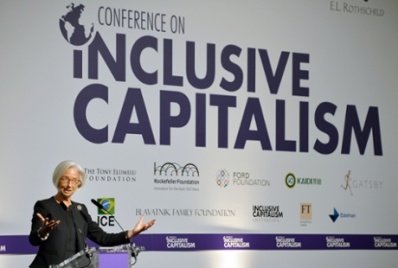
“When bad men combine, the good must associate; else they will fall one by one, an unpitied sacrifice in a contemptible struggle.” E. Burke
“To restore trust, we need a shift toward greater integrity and accountability.” C. Lagarde
In their speeches during the Conference on Inclusive Capitalism in London (May 28th), both Christine Lagarde (Managing Director, IMF) and Mark Carney (Governor, Bank of England ) made a plea for ethics and integrity in the financial system. (You can find Lagarde’s speech here.)
Christine Lagarde advocated the position that “We need a stronger and systematic ethical dimension. … Ethical behavior is a major dimension of financial stability.”
To my relief, she developed a broad perspective on ethics. Ethics is more than enforcing regulation and supervision: it is also about creating cultures of integrity. She is very much aware of the fact that this requires sustained attention to education and leadership.
Mark Carney stated that capitalism is doomed if ethics vanishes. He encourages bankers to adopt high ethical standards. The necessary changes will be brought “through a combination of tougher regulation, reform of compensation and the willingness of bankers to realise that it is in their own long-term interests to behave more responsibly.”
They both agree that focusing on integrity is essential to regain trust. Both are aware that creating a culture of integrity is a never ending process. It is hard, but not impossible.
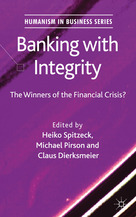
That combining banking and ethics is possible is shown in ‘Banking with integrity. The winners of the financial crisis?’ The authors (Spitzeck, Pirson, Dierksmeier) describe how some banks (e.g., ABN Amro Real, Triodos, Cooperative Bank of Chandia, Banca Poplare Etica, Banca Prossima, …) were able not only to survive the financial crisis, but even managed to grow. Looking for their recipe for success, the authors saw that these bank were able to resist opportunistic behavior by holding on to their moral perspective and being loyal to their moral principles. This protected them from short-term thinking and narrow-minded profit-maximalisation that ended too often in selling complicated and toxic products. These banks didn’t enter the expanding bubble. They stayed out of it. Instead, they focused on staying close to clients and stakeholders, involving them in corporate governance mechanisms and exercising strict risk management practices.
As a contact of mine, a manager in a medium-sized bank, said: “One of our core values is ‘simplicity’. This value is part of our cultural DNA. It withheld us from products that were so complicated that nobody understood them really.”
‘Banking with integrity.’ teaches furthermore that major financial crises in the past always were followed by new regulations to prevent future catastrophies. These efforts were not successful …
Most ‘normal’ banks suffered (suffer?) from a condition that is coined by Goodpaster as ‘teleopathy’, or the unbalanced pursuit of purpose. (From the Greek, ‘telos’, for ‘purpose’.) In his book ‘Conscience and Corporate Culture‘ he identifies three symptoms of teleopathy:
- Fixation or singleness of purpose; leading to
- Rationalization; leading to
- Detachment.
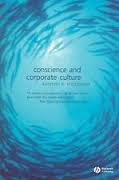
Detachment leads to moral indifference and apathy. No need to explain that these are prerequisites for immoral decisions and behavior. Teleopathy lowers the threshold for opportunistic behavior.
Goodpaster’s remedy for teleopathy is conscience. He describes conscience as thoughtfulness, awareness and as moral insight. He elaborates the idea that there is parallel between the decision-making dynamics of individuals and of organizations. “Teleopathy bears some ressemblance to the ‘pre-moral’ stages of child development. The unbalanced pursuit of purpose is the most significant obstacle to adulthood – but also the most significant obstacle to a healthy organization and a healthy market economy.” Conscience, in his opinion, is not merely subjective but forms a clear vision and strength in a culture. In the second part of his book he descibes the moral agenda of leadership that accepts the challenge of building a corporate conscience. It is hard work, but not impossible.
It is important that people as Lagarde and Carney talk about integrity. Even if their ideas are met with skepticism and even cynicism. After all, Carney is a former Goldmann Sachs banker. Nevertheless, I think their speeches are essential in creating the right climate for necessary changes.
What is even more important is that their speeches open up new levels of thinking about ethics and integrity. Integrity is also about culture. But there is more to it. Culture has to be guided by a moral conscience. Not every culture is based on ethical values and driven by moral thinking. As Goodpaster shows, promoting and embedding integrity really starts with moral insight. Ethics challenges culture, integrity has the power to create cultureshifts. “Culture,” as Peter Drucker once said, “eats strategy for breakfast.” “Moral thinking,” I say, “eats culture for lunch.”
Of course, eloquent speeches are not enough. More work has to be done to successfully start a process that lifts integrity beyond compliance and integrates ethics in the Moral DNA of a company.
I talk a lot with people in the financial sector, mostly compliance and ethics officers or managers responsible for education and formation. I’m doing research on how financial institutions train and educate their people in ethics. This research includes questions as “How do you define integrity?”, “What kind of ethics training do you provide?”, “How would you describe the conscience of your organization?”, “What is your moral compass?”
Most of my interlocutors are aware that promoting ethical behavior and educating people is about more than compliance. And that it definitely is not just a matter of a one-day training on ethics, an inspirational speech from the CEO or a flashy values document.
But managers are very insecure when it comes to integrity beyond compliance. They feel kind of lost when entering the realm of ethics. Let me show you some of their concerns.
Firstly, some say that defining integrity is the most challenging element of managing integrity. Integrity and ethics are concepts that are vague. They have been and are used in a variety of interpretations. How can you be sure that a given definition of integrity is correct?
Secondly, being familiar with the traditional compliance approach, they think ethics and integrity beyond compliance aren’t manageable. Integrating values in an organisation is considered feasable and achievable. But changing culture based on moral thinking makes them feel uncomfortable. “If I don’t know what it is, how can I manage it? How can I build a culture of integrity if I don’t know what the touchstone of integrity is?”
Thirdly, imagining that they would accept the challenge, “How do we guarantee the quality of this moral endeavour?” they ask. “I don’t want to spend my rare resources in a undirected attempt to do ‘something’ with ethics.”
“I realize that these are deeper questions than economists and policymakers are normally comfortable talking about,” Lagarde says. But they need to be asked. And just as she does in her speech – she turns to Aristotle – we should look towards philosophy to help managers to overcome this hurdle.
Defining integrity, managing integrity beyond compliance, thinking about the true purpose of banking, developing a corporate conscience and moral thinking demand philosophical skills.
This reminds me of a saying: “Do you know who is even more helpless than a philosopher who has no managerial skills? … A manager who has no philosophical skills.”
These managerial concerns should be taken seriously. But managers should not avoid these fundamental questions. At least, if they aim at implementing a long-term vision on ethics and integrity in their organisation. By the way, they shouldn’t worry too much. Philosophical skills can be trained. There are even courses ‘Philosophy for Children’. You only need a curious mind, the ability to think critically and independently and some patience to stick with the given questions. And if you really don’t like to do the thinking yourself: hire a Corporate Philosopher!
But for now, let me end by returning to Christine Lagarde’s challenge to build cultures of integrity. Hopefully the following free advice adresses also some of the aforementioned managerial concerns.
1. Develop a concept of integrity that is challenging, positive, stimulating and that matches the professional self-image of your staff. A shift towards an integrity-driven culture starts with this quest.
2. Teach and stimulate employees to make moral decisions carefully. Train the moral competence of your staff. Develop their capability to recognize moral issues, to identify people who are affected by these decisions, to carefully weigh arguments. The moral decision-making skills of each employee are the foundation of a culture of integrity.
3. Enable your staff to talk about their moral concerns. Communication is key. Organize moral consultation. Breach moral muteness.
4. Invest in the development of your organizational conscience through building up moresprudence. Moresprudence refers to a collection of knowledge and experience on how to deal with all moral aspects of work.
5. Develop a strong organizational moral compass. Use it! The culture, structure and strategy of your organization should be in coherence with this compass. Aligned, they form a formidable force.
Every great undertaking starts with the belief that it is possible to achieve or that it is the only right thing to do. Changing corporate culture is such an adventure. Especially in the financial sector. The more believers there are, the sooner we reach the necessary tipping point. Christine Lagarde and Mark Carney are believers. Goodpaster is a believer. And so am I. Believers should associate.

